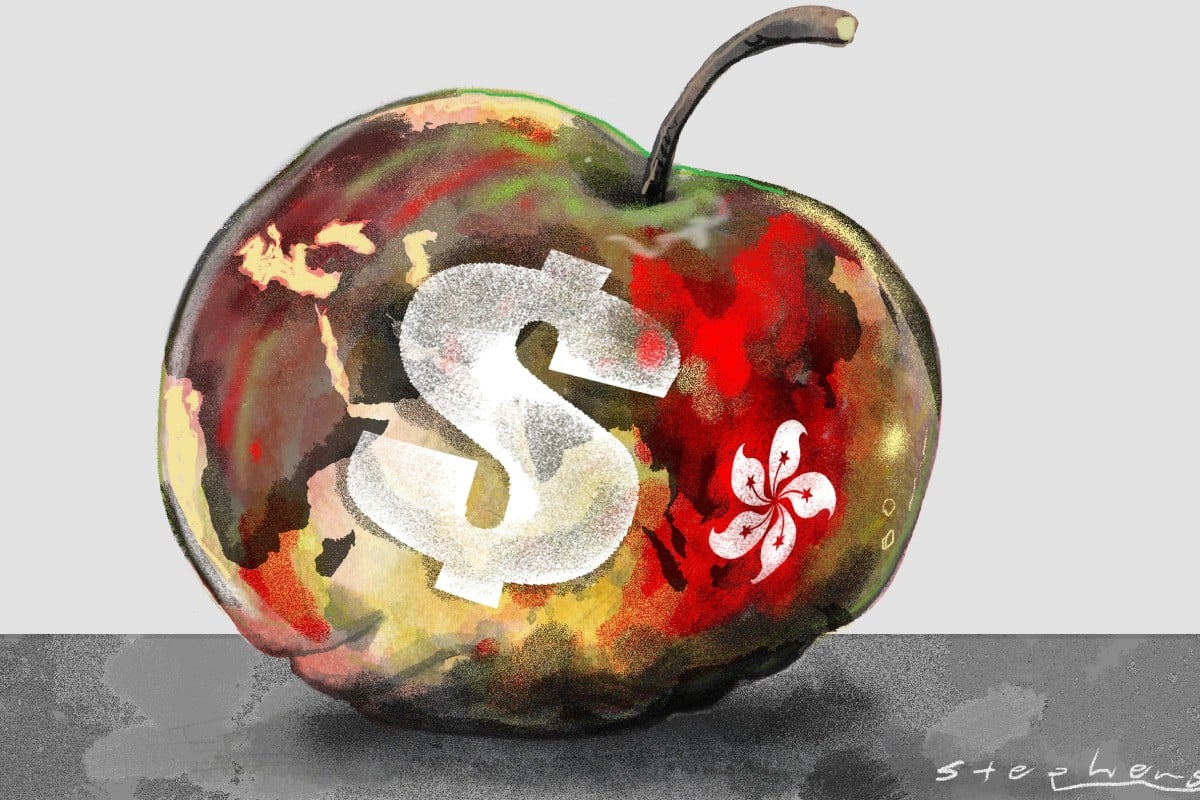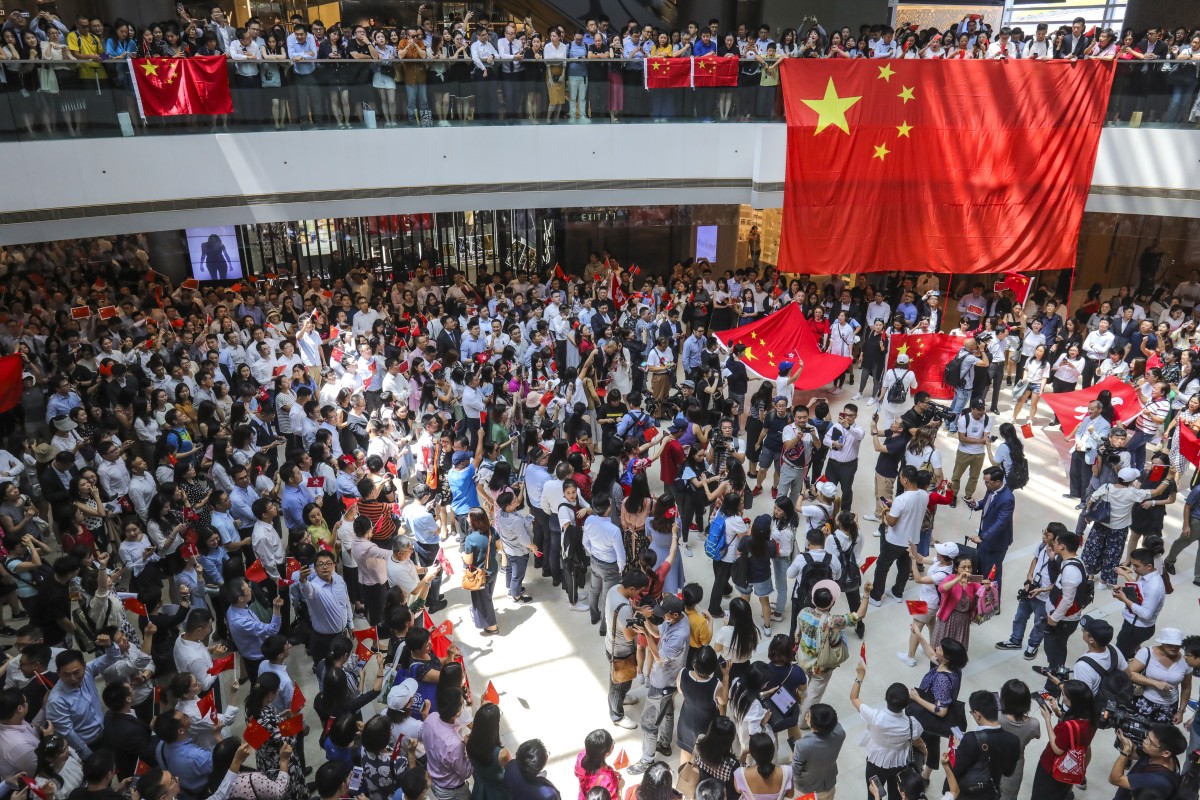When Karl Marx wrote what he wrote, capital had too much sway, labor was powerless. But that was a long time ago. After 1989 China tried to give capital more room at the table, instead of no room at the table. That led to the largest reduction of poverty in world history.
But the CCP has been miserly on political reforms. If they were to take a scientific approach to what is happening in Hong Kong, they have a wonderful opportunity to preserve one country, two systems, and to usher a new era of political reforms inside China.
That half the Hong Kong legislature in Hong Kong is unelected capitalists, why is that not a problem for the Beijing communists?
Xinhua warns 'end is coming' for Hong Kong protesters China issued a stern warning to Hong Kong protesters as well as the West on Sunday, reiterating that it will not tolerate any attempt to undermine Chinese sovereignty over the city.
China does not understand Hong Kong's leaderless movement On August 30, key pro-democracy activists in Hong Kong, including Joshua Wong and three lawmakers from the opposition camp, were arrested. After months of protests both peaceful and violent against a proposed extradition bill and police brutality, the Hong Kong government, instead of making concrete concessions, has decided to step up repression. Protesters responded with more determined action.
Xi brings in 'firefighter' Wang Qishan in bid to calm Hong Kong China's Vice President Wang Qishan, a close aide to President Xi Jinping and the former enforcer of the president's anti-corruption campaign, is believed to have played a key role in the recent developments in Hong Kong.
Trump on thinner political ice than Xi in trade war Domestic politics, however, make the U.S. president's position a lot dicier than it looks. ..... The opening salvos had come in July 2018, when Trump imposed 25% additional tariffs on $34 billion worth of Chinese imports, including industrial machinery, out of the roughly $550 billion worth of products the U.S. buys from China every year. Washington launched a second barrage the following month, targeting another $16 billion worth of imports, and escalated its attacks that September by adding $200 billion in goods to the list......... The latest and fourth batch of U.S. tariffs increased the total by $110 billion to $360 billion....... And despite rampant speculation that Xi was facing growing criticism within the Communist Party, the party's secretive annual summer meeting in the seaside resort of Beidaihe offered no signs that the president was in a political bind....... Only two incumbent U.S. presidents have failed to be reelected since the end of World War II -- Jimmy Carter and George H.W. Bush -- and an economic downturn was a major reason in both cases......... If the economy starts to seriously suffer, with little leeway for major monetary expansion, Trump's reelection chances could come down to achieving a truce in the trade war....... Rushing to compromise would also pose risks, though, with the U.S. Congress as a whole now adopting a tough posture on China....... his penchant for surprises should not be underestimated. Frustrated with Beijing's stalling tactics, he might expand the battle from trade to currency and the financial markets. ...... In that case, Trump would head into the presidential race with his hard-line China policy intact, while pinning blame for the sputtering economy on the Fed and Beijing........ If Beijing moves to crack down on the demonstrators, using force like it did in response to the Tiananmen Square protests in 1989, China could be hit with international sanctions that would squeeze its economy hard....... That would turn what was a bilateral trade dispute into an all-out cold war between the two largest economic powers, with potentially devastating consequences for the global economy.
Navigating The Hong Kong Protests https://t.co/phkyTr2ezO @MeetThePress @huffpostpol @msnbc @thinkprogress @edshow @thehill @cspan @politico @rollcall @WSJ @foxnews @washingtonpost @redstate @drudge_report @AP @dailycaller @rollcallpols @cnnbrk #HongKong #HongKongProtests
— Paramendra Kumar Bhagat (@paramendra) September 14, 2019





